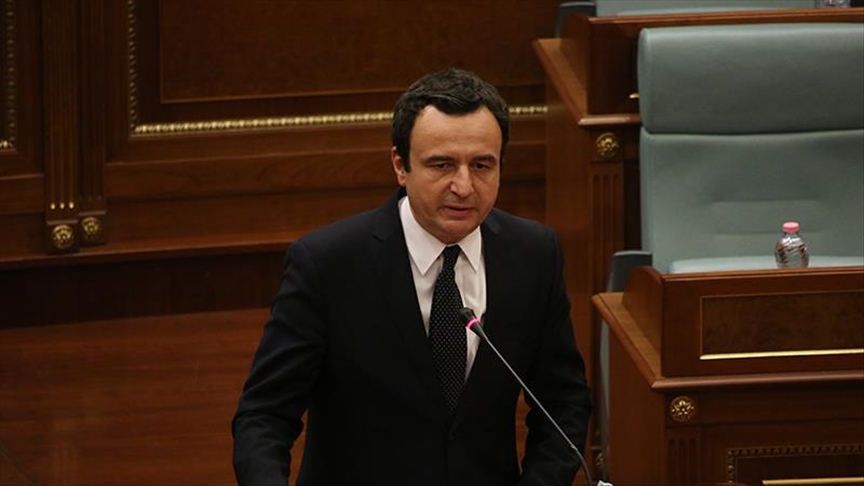
BELGRADE, Serbia
Albin Kurti was elected Kosovo’s prime minister on Monday for a second time.
The nation’s parliament elected the left-wing opposition leader to lead Kosovo's seventh government since the country declared independence in 2008.
In an extraordinary session of the Kosovo Assembly, newly sworn-in MPs passed a motion electing a new government led by Kurti, with 67 votes in favor, 30 against, and no abstentions.
At the beginning of the session, Kurti presented the main goals of his government.
Kurti said that without the recognition of the reality of independent Kosovo and the acceptance of the truth by neighboring Serbia, there can be no normalization of relations between the two peoples and two countries.
He added that Kosovo and Serbia have open issues that need to be resolved through dialogue, but no progress can be made if there is no progress in resolving the fate of the missing in Kosovo.
"We will work tirelessly to make Kosovo part of NATO and part of the European Union because we share common values and goals. The road to EU integration can be challenging, but there is no alternative to Kosovo,” he said.
"The Western Balkans must be democratized, in addition to being developed."
Serbian List MP Igor Simic voiced opposition to Kurti’s premiership, alleging that the country’s Constitution was violated because the Serbs did not get two ministries, which they deserve from the Feb. 14 elections. He announced an appeal to the Constitutional Court.
The new government includes 15 ministries, five of which will be headed by women, while the prime minister will have three deputies: First Deputy Prime Minister for European Integration, Development and Dialogue Besnik Bislimi, Second Deputy Prime Minister and Minister of Foreign Affairs and the Diaspora Donika Gervall, and Third Deputy Premier for Minority Rights Emilia Rexhepi.
Kurti also served as premier last year, for less than two months.
This February, Kosovars voted in snap polls to choose new members of the country's 120-seat parliament, with Kurti's socialist Self-Determination Movement (LVV) winning nearly 48% of the vote.


